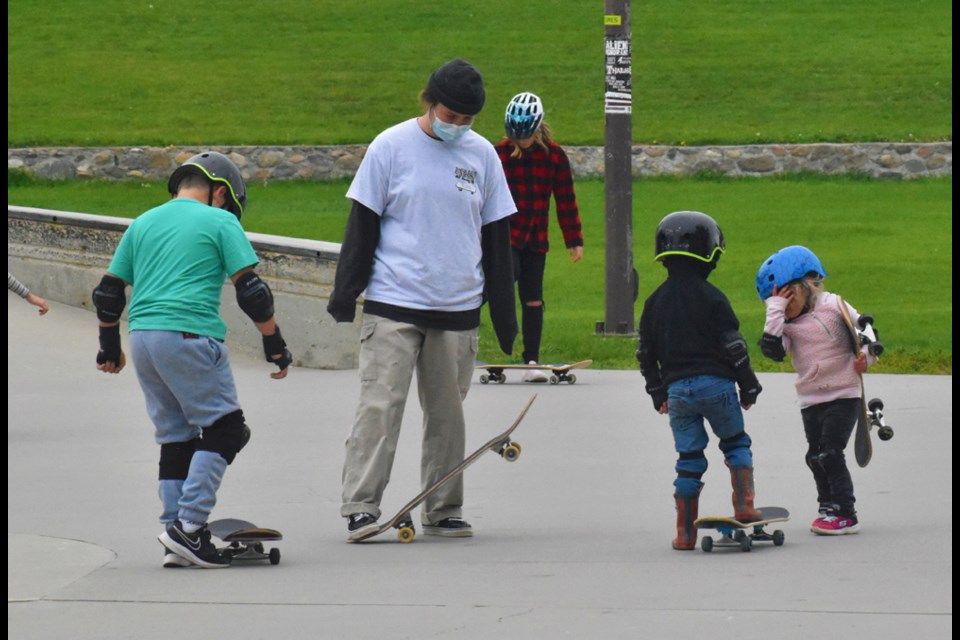SASKATOON - Sarah Kelly, the Directing Manager of Right to Skate, continues to advocate for the promotion of skateboarding among the youth, particularly women, and to create more spaces for them in the community.
As a female skater, Kelly recognised the need for more opportunities for women and organised girls’ nights at the indoor skatepark six years ago, which led to her involvement in community organising.
"I am also passionate about getting youth on skateboards and keeping them on skateboards. Not all kids identify with organised sports, and skateboarding is a wonderfully creative and individual outlet," Kelly shared with SASKTODAY.
Kelly was inspired by Joel Fortier's work with Right to Skate, a Saskatchewan-based non-profit organisation that provides scholarships to low-income families, immigrants, and refugees who cannot afford skateboarding lessons, gear and access to skateboarding camps.
Right to Skate aims to make skateboarding accessible to everyone, regardless of their financial situation.
"Skateboarding also has a low barrier to entry financially and by location; Lions skatepark is accessible by foot to youth in the inner city, which I love. Skateboarding has done a lot for me, so giving back to the community was a natural progression," Kelly said.
Kelly was recently awarded the 2023 Living in Harmony Community Recognition award for her work with Right to Skate, which focuses on inclusivity and creating a welcoming community.
Stephanie Cole from Wildwood School and the Holy Cross High School's Truth & Reconciliation Club also received recognition during the celebration of Cultural Diversity and Race Relations Month in March.
Despite their challenges in maintaining an indoor skatepark, Kelly and Right to Skate are optimistic about expanding their scholarship program and reopening an indoor skatepark.
The indoor skatepark would provide a space for skaters during the winter months and could be used all year round in addition to the Lions skatepark in the Riversdale neighbourhood.
"Indoor skateparks in our city notoriously open and close a year or two later. It is a good time to try again, however. Skateboarding is more popular than ever; we hope to use this momentum to attract more support," Kelly said.
Right to Skate plans to continue partnering with the Saskatoon Open Door Society by hosting skateboarding lessons for new immigrants and refugee youth and weekly meetups for women, trans, and queer folks.
Kelly also hopes to expand the reach of their Skate Scholarship program, which provides skateboards to Black, Indigenous, People of Colour, and youth from low-income families.
Kelly also mentioned the challenges of travelling by skateboard or longboard in the city and hoped that roads and streets could be made skater-friendly like those for bicycles and electric scooters.
"Our roads are rough compared to other cities and skateboarding is still banned in downtown and Broadway areas. A $50 fine enforces this," she said.




